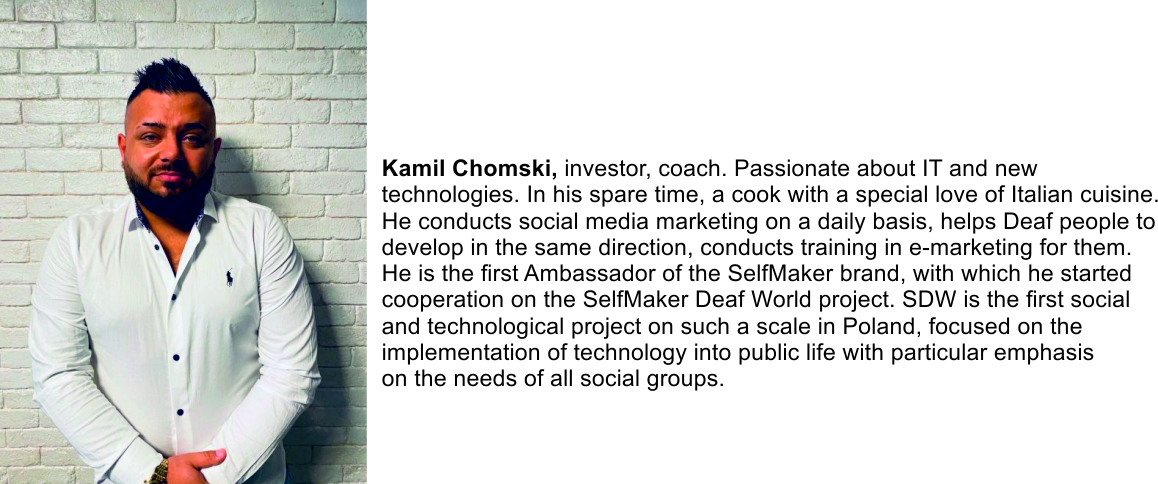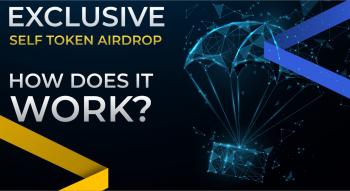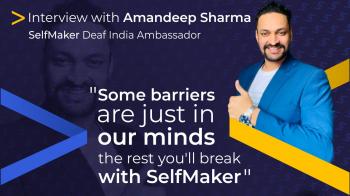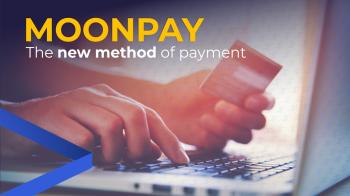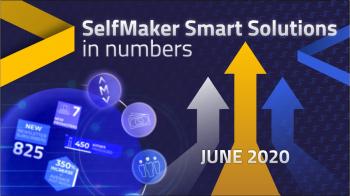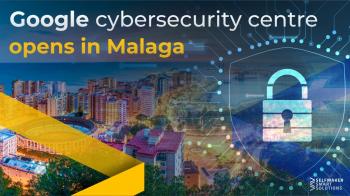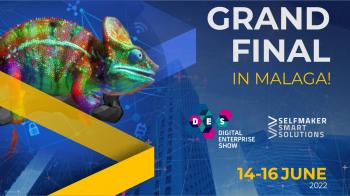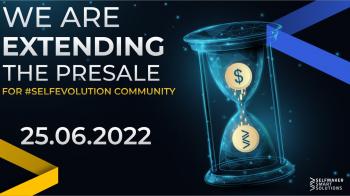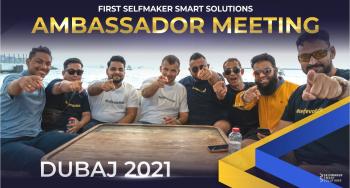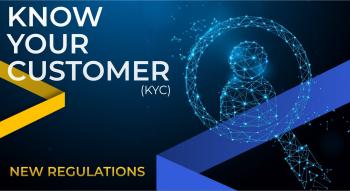“We need to know how to listen”. Welcome to the first interview in the #selfevolution <STAR> series powered by SelfMaker Smart Solutions
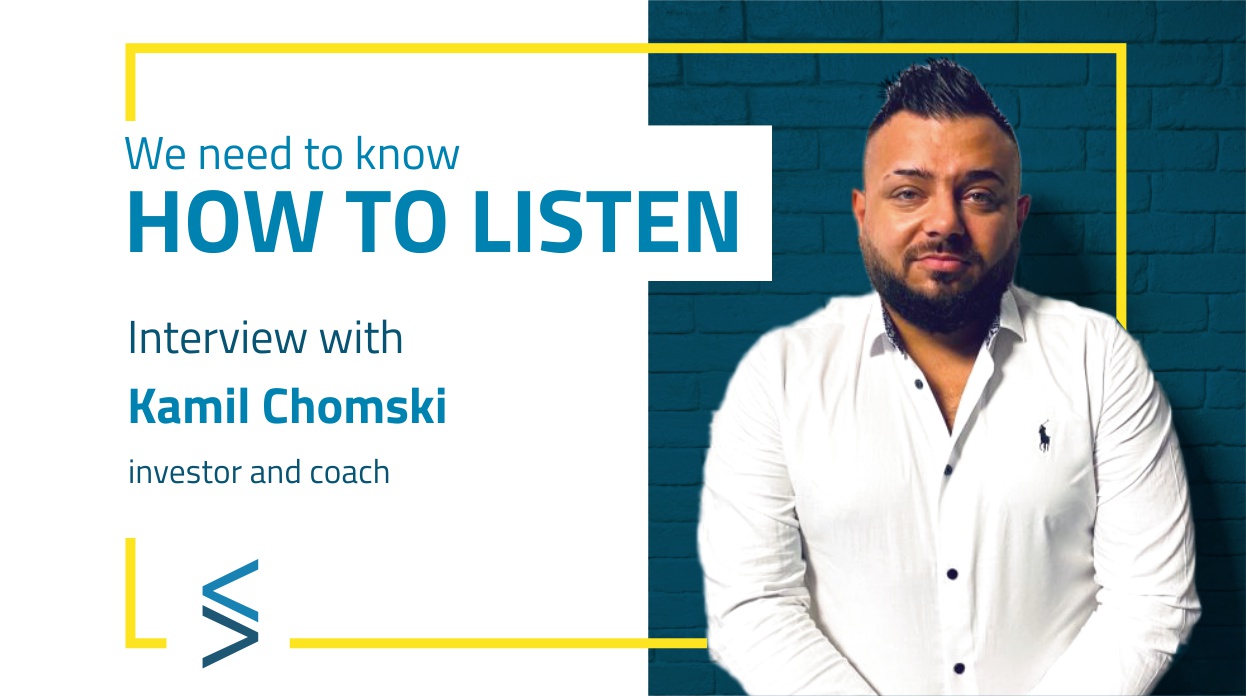
February 27, 2020 | #selfevolution interviews
November 2019, the gatehouse of the largest retail fair in Poland. Long before the planned registration, you can see a crowd of people, waving vigorously, talking. But you can't hear anything. You can only feel the energy floating around, and it's hard to walk past it indifferently. They just sign.
Kamil emerges from the crowd. He lost his hearing in a childhood accident. A man of great ambition, a leader. It's because of this strength of character, he learned to speak. It gives an example that barriers are in our minds, and any disability does not prevent us from self-improvement. One handshake and you know immediately that you can move mountains with this man. We are talking to Kamil Chomski, an investor, a coach and a motivator of hundreds of people all over Poland, about how technology changes the everyday life of Deaf people, what they struggle with every day and what we should learn from them.
AG: Do people know how to listen?
KCH: People are used to sounds - noise around them - communication is much more complex. That is why people who have all their senses properly functioning are often deaf. They do not see the nuances, it happens that they do not understand and do not want to understand those, who due to the limitations of their bodies are able to see more.
That's why your project is called SelfMaker Deaf World.
Yes. In this way, we would like to show the rest of society a certain portion of the world from a completely different perspective.
Not that small of a portion. About 100,000 Deaf people live in Poland, they are more or less the population of the whole Zielona Góra, and Polish is a foreign language for them.
This is because, for Deaf people, the main problem is speech communication and its written form. Hearing people think that if they write a few words, the Deaf will understand everything, but this is not the case. Let me give you an example. Most of us have problems talking to a doctor or a waiter, they try to say something, the hearing side seems to understand, but after a while, it turns out that they understood something completely different. It's as if two people try to speak the same language, but in this communication, it seems like they are from two different parts of the world.
How can these worlds get closer together?
Education and technology. Education because if only I could change something, I would start with schools, so that Deaf children could communicate with each other in PSL – Polish Sign Language. You will also certainly need support for the parents with a deaf child, by providing them with a free sign language course, for example. More PSL translators for young people, improvement of health and safety regulations and education of employers because deaf people can do everything, with the difference that they just can't hear, but I know from experience that this is not a limitation.
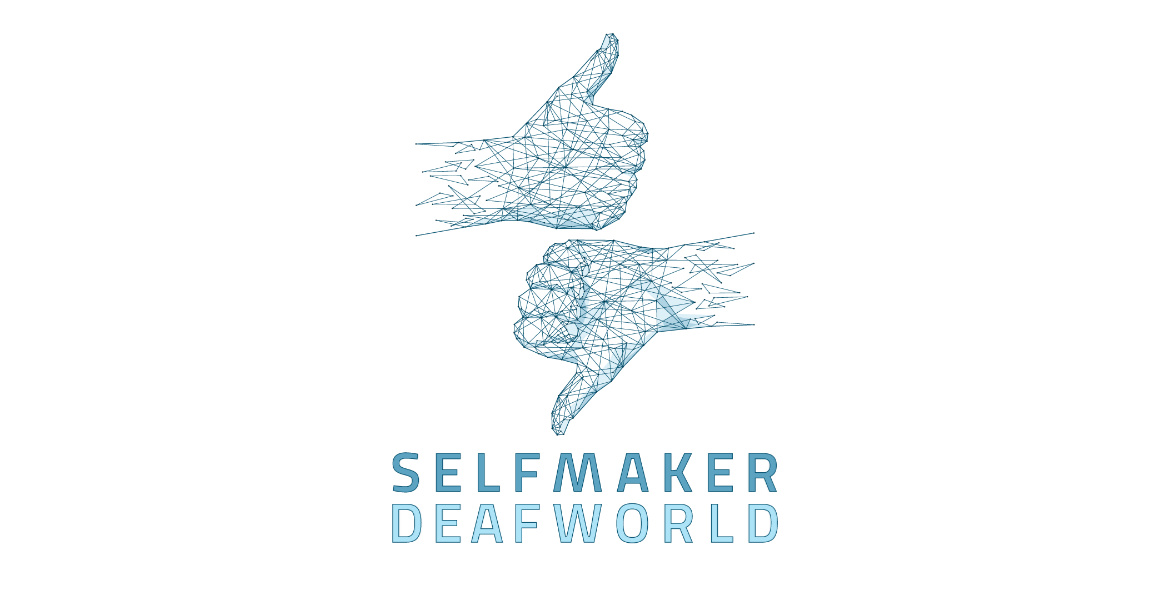
What about technology?
The technology is developing very fast nowadays, some people see it as a threat, but for me, it is a power that not only changes the world globally but has contributed to the quality of life of Deaf people. Imagine that after years of problems with remote communication with other people, suddenly text messages appeared. Thanks to this, more and more people started to write better in Polish. And the world of the Deaf has come closer with the appearance of communicators, social networks and the possibility of easy video chat. We can communicate with each other regardless of national borders, for Deaf people it is a huge change.
Another aspect is communication in everyday activities such as shopping or having lunch in the city. For example, in a restaurant, a waiter usually doesn't understand what a deaf person wants to order, then brings something else that we didn't order. Imagine the frustration with this kind of daily activity. The same is true in the markets, so for Deaf people self-checkouts are a convenience because you don't have to communicate with a cashier, simply no complications and no stress.
Is that why you learned to speak to and understand hearing people?
It was a matter of fighting for yourself. I have not been deaf since I was born, I hit my head when I was 4 years old, and by that time my hearing disappeared. Since the accident, my parents got me hearing aids, but in those days they were not very advanced. I started going to a regular school with hearing people, where others thought I was illiterate. That' s when I realized that I had to change that, that my future depends on it. The breakthrough came when I was 16 and I met a hearing girl. We started texting, I wrote down the words on a piece of paper, every day there was slight progress, but also a huge fight not to give up. The situation improved when, after 4 years of such learning, I got a new hearing aid and started to perceive better sounds, but it was yet another struggle for many months to start recognizing them and learning them. Then I started to learn to speak, I even talked to myself when I went to bed, and with time other people started to understand me, and that was a huge motivation to keep on. It's been 8 years since then and I know that sometimes I have problems with word formation or grammar, but it was worth it. Now I can be the link between these two worlds.
On your live chats, you often communicate your knowledge about new technologies and companies that are developing dynamically on the market. Do you like to keep track of technological innovations?
I love it! Thanks to that, I came across SelfMaker, a company that mainly deals with creating state-of-the-art technology. For a long time, I was looking for a team on the market that would be able to implement technology to improve the lives of Deaf people in everyday day life. I found SelfMaker, and after talking to Marek Wieteska, I knew we had to start cooperating. Because the real change starts where we don't see it, and self-checkout kiosks are the future, not just for the Deaf. I also liked the approach of the founders, who, knowing this market for so many years, decided on a completely new quality. Because kiosks or multimedia kiosk are supposed to fulfill their function, but SelfMaker went one step further by designing a really nice looking devices. I know because I'm an aesthete myself (laugh).
Deaf people are a minority living among the hearing people. What else would you like other people to know about this community?
I would like people to know that the word Deaf is always written in capital letters because we are a cultural and linguistic minority, and like other cultural groups, we have our own language, traditions, customs, institutions, and a sense of being different, on which a common identity is based. Sometimes hearing people use the word "Deaf-mute", which is offensive to us because the ending "mute" means we have no tongue because of deafness. This is a mistake because we have Polish Sign Language and this is a very communicative language and as fluent as spoken language is for you.
Do you think that a Deaf person's success verges on a miracle? Or is it up to us?
I'm a Deaf person and I don't feel limited or disabled. It’s just hearing. Besides, we have the same possibilities and equal opportunities as people with hearing, but you have to want it, and you have to have a strong will. You have to believe in your abilities because strength is inside you, and in my opinion, no disability has any influence on that.
Thank you very much for an inspiring conversation.
Thank you.
Interview by Agnieszka Gonczar
